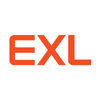1 Cosmo Carrying Job
Digital Marketing Lead
Cosmo Carrying
posted 1d ago
Job Role Insights
Key skills for the job
Job Description
The Digital Marketing Officer is responsible for developing, implementing, tracking, and optimizing digital marketing campaigns across various digital channels. This role requires a mix of creativity, analytical thinking, and strong communication skills to effectively manage both content marketing and offline marketing initiatives.
Key Responsibilities
1.1 Digital Marketing
- Develop and Execute Digital Campaigns: Create, manage, and optimize digital marketing campaigns across platforms like Google Ads, social media, email marketing, and SEO/SEM.
- Develop and Execute Digital Campaigns: Create, manage, and optimize digital marketing campaigns across platforms like Google Ads, social media, email marketing, and SEO/SEM.
- Content Creation: Develop engaging content for various digital platforms including blogs, websites, social media, and email newsletters. Ensure content aligns with the brands voice and marketing goals.
- Social Media Management: Manage social media accounts, create and schedule posts, monitor engagement, and respond to followers. Develop strategies to increase followers and engagement.
- Email Marketing: Design and execute email marketing campaigns, including newsletters, promotional emails, and automated workflows. Analyze performance and optimize for better results.
- SEO/SEM: Implement and manage SEO strategies to improve organic search rankings. Conduct keyword research and use analytics tools to track and improve SEO performance.
- Analytics and Reporting: Monitor and analyze campaign performance using tools like Google Analytics. Prepare regular reports and provide insights to optimize future campaigns.
1.2 Content Marketing
- Strategy Development: Develop content marketing strategies to attract and engage the target audience. Plan content calendars and align content with marketing goals.
- Content Production: Write, edit, and proofread content for various channels. Work with graphic designers, video producers, and other content creators to produce high-quality content.
- Content Distribution: Manage the distribution of content across multiple channels, ensuring maximum reach and engagement.- Performance Analysis: Measure and analyze the performance of content marketing efforts. Use insights to refine strategies and improve effectiveness.
1.3 Offline Marketing
- Event Planning and Management: Plan and execute offline marketing events such as trade shows, seminars, workshops, and community events. Coordinate logistics, manage budgets, and ensure successful event execution.
- Promotional Materials: Develop and distribute offline marketing materials such as brochures, flyers, posters, and banners. Ensure consistency with the brand\u2019s image and messaging.
- Partnerships and Sponsorships: Identify and establish partnerships and sponsorships that align with marketing objectives. Manage relationships and negotiate terms.
- Market Research: Conduct market research to understand target audience preferences, market trends, and competitive landscape. Use insights to inform offline marketing strategies.
Qualifications
- Education: Bachelor\u2019s degree in Marketing, Communications, Business, or a related field.
- Education: Bachelor\u2019s degree in Marketing, Communications, Business, or a related field.
- Experience: Minimum of 3-5 years of experience in digital marketing, content marketing, and offline marketing.
Key Competencies
- Creativity and Innovation: Ability to think creatively and develop innovative marketing strategies.
- Creativity and Innovation: Ability to think creatively and develop innovative marketing strategies.
- Analytical Thinking: Strong analytical skills to measure campaign performance and derive actionable insights.
- Communication: Excellent interpersonal and communication skills to work effectively with team members and stakeholders.
- Organizational Skills: Ability to manage multiple tasks and meet deadlines in a fast-paced environment.
- Team Player: Ability to collaborate effectively with cross-functional teams.
Requirements
Requirements
- Strong understanding of digital marketing channels and tools.
- Excellent written and verbal communication skills.
- Proficiency in content creation and management.
- Analytical skills and ability to interpret data.
- Project management skills with the ability to manage multiple projects simultaneously.
- Familiarity with SEO/SEM, Google Analytics, and social media platforms.
Employment Type: Full Time, Permanent
Read full job description What people at Cosmo Carrying are saying
What Cosmo Carrying employees are saying about work life
based on 2 employees
Day Shift
Similar Jobs for you
Share an Interview


























